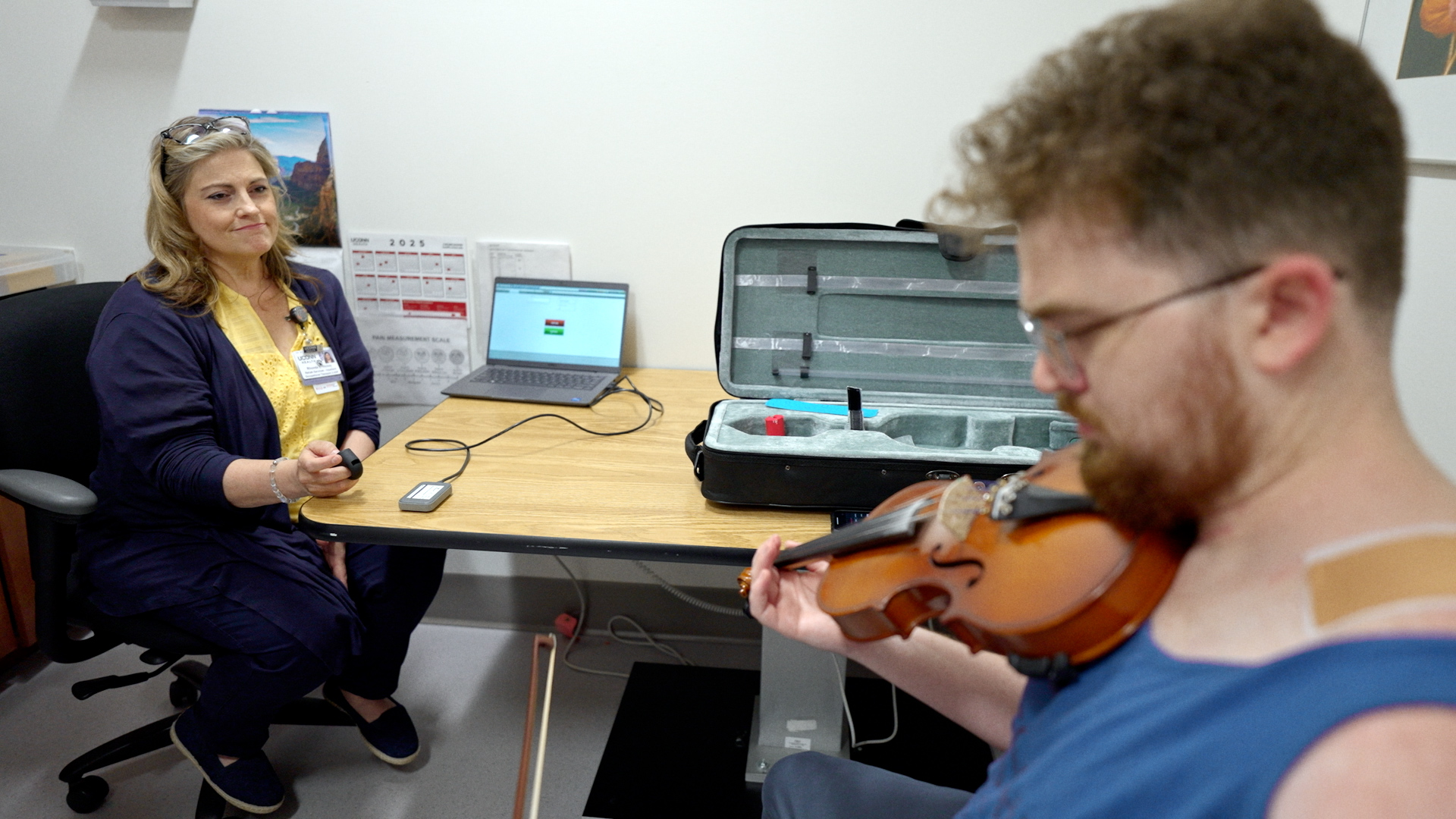Most people lose some of their mental acuity as they age. Grandma might have the occasional “senior moment” when she misplaces her reading glasses or forgets someone’s name. This is a normal part of aging, but for 5.7 million Americans living with Alzheimer’s disease, these “moments” are severe, chronic and interfere with their ability to live their daily lives.
Dr. Riqiang Yan, chair of the UConn Health Department of Neuroscience, has received a competitive renewal grant of $3.2 million from the National Institute on Aging to study a potential treatment that gets to the core of the physiological processes responsible for Alzheimer’s. UConn Health assistant professor of neuroscience, Xiangyou Hu is a co-investigator on this project.
Alzheimer’s is the sixth highest cause of death in the United States, just below strokes. It is a serious neurodegenerative disorder which causes seniors to lose their memory and cognitive abilities. and is caused by a buildup of a peptide called beta amyloid. The peptide forms a plaque in the brain by inhibiting brain cells’ functions and ability to communicate with each other.
BACE1, discovered by Yan 20 years ago, is an enzyme that plays a crucial role in enabling the formation of beta amyloid. BACE1 cleaves the amyloid precursor protein; this creates a protein fragment that remains to anchor onto the cellular membrane of neurons – brain cells. That fragment is then cleaved a second time by another enzyme and gives rise to beta amyloid.
Hence, it is widely recognized that inhibition of BACE1 may treat Alzheimer’s disease. Yan and Hu are seeking to find a way to properly inhibit BACE1 and thus block the formation of beta amyloid by interfering with the first step in its formation.
In a previous study, Yan, Hu, and their colleagues discovered that inhibiting BACE1 in mice in early stages of Alzheimer’s can remove pre-existing plaques. However, that study was unable to address the question of how effective inhibiting BACE1 will be when dealing with later stages of Alzheimer’s which is the most relevant in terms of application for actual patients.
The researchers also hope to learn more about how BACE1 is able to remove the plaques.
The results of this study will provide critical guidance for safe and effective use of BACE1 inhibitors in humans so that scientists may move closer to finding an effective treatment for this disease that still has no cure.
“There is a clear urgency for bringing safe and effective drugs to Alzheimer’s patients,” Yan says. “We are so grateful for this continuing support from NIH, which will allow us to conduct a more thorough study on BACE1 inhibition and to guide better implementation of BACE1 inhibitors in human patients.”
Yan attended Shanghai Medical University where he received degrees in pharmacy and medicine. He received his Ph.D. from the University of Kentucky where he also completed a fellowship.
Hu received his Ph.D. from the University of Science and Technology of China in neurobiology. He completed postdoctoral work at the Cleveland Clinic Lerner Research Institute as a research fellow.
This project is NIH Grant No.: 2 R01 AG046929-06



